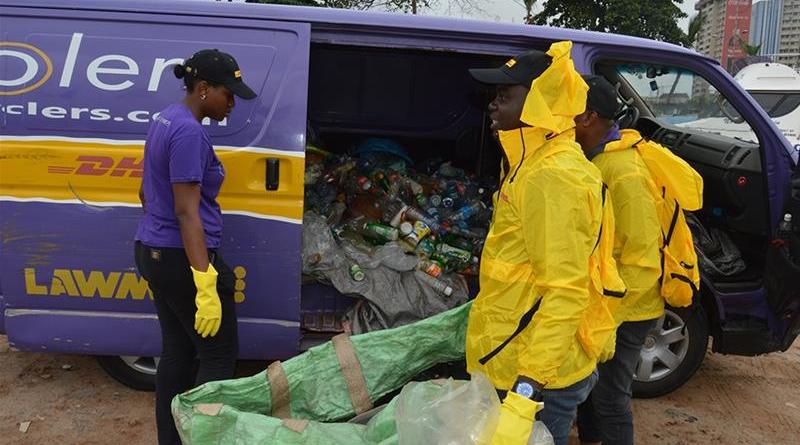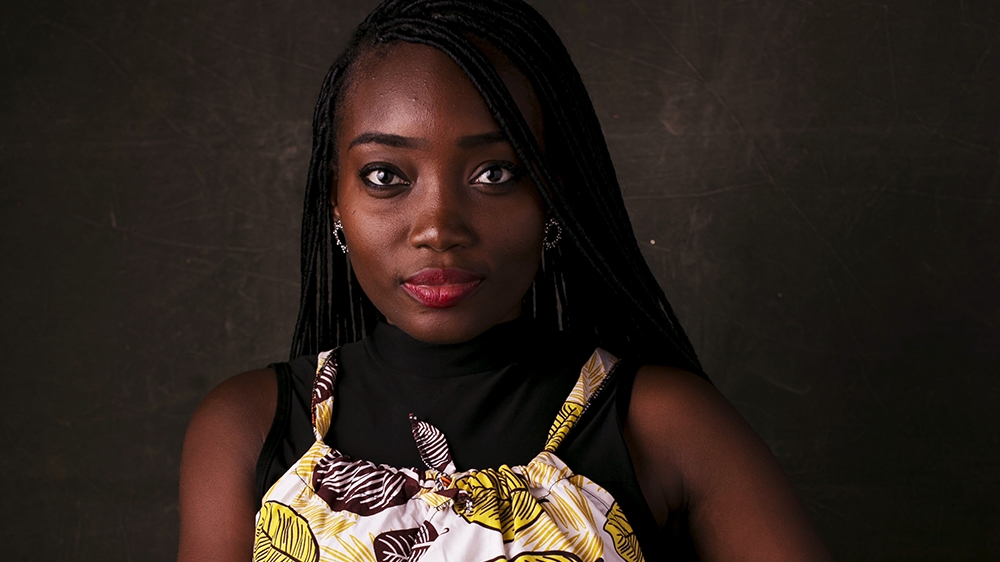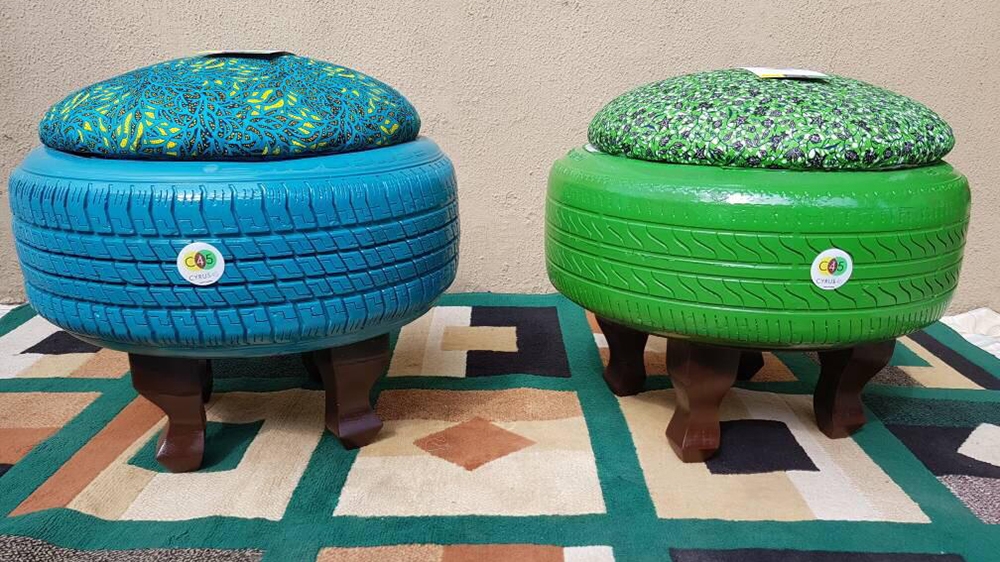The women trying to solve Lagos' waste problem.

From recycling to up-cycling, entrepreneurial women lead the fight to reduce waste in Nigeria's densely populated city.
Lagos, Nigeria - For Bilikiss Adebiyi-Abiola, the inspiration came early.
As a child growing up in the 1980s and 90s, she watched her engineer mother lead teams at Nigeria's now closed telephone utility company.
"My mum was a goal-getter with an important job," she told Al Jazeera, adding that having a role model "helped pushed me."
After returning home from the United States,Adebiyi-Abiola, an MIT-trained software engineer, launched a waste recycling company in 2012.
Seven years on, the 36-year-old and likeminded women are leading the push to rid Lagos of its mammoth heaps of waste by introducing new initiatives to complement the old ways.
Lagos, Nigeria's former administrative capital and current commercial capital, is home to an estimated 18 million people.
This figure is on course to double by 2050 and the city-state is projected to be the world's most populous place by 2100.
The implications of population growth on waste generation could be severe; Lagos currently churns out 10,000 tonnes of waste daily, according to Lawma, the state waste management agency.
Today, only 40 percent of the daily waste is collected by the municipal government.
For years, successive city administrations have relied on workers - including women - to manually sweep the streets at dawn and handpick through rubbish at its single, gigantic landfill site. Spreading over 40 hectares, Olusosun is one of the largest dumps in the world.
Government officials should contact proven entrepreneurs in the private space, such as Adebiyi-Abiola, for help with tackling Lagos's waste, said Olufunlayo Bammeke, gender awareness expert and professor of sociology at the University of Lagos.
"There should be public-private partnerships in confronting waste disposal and management in Lagos State with the involvement of several entrepreneurs. Never should government restrict waste management to a single private agency in Lagos State," she said.
Women are taking on roles with more responsibilities within the ecosystem, but in a private capacity.
Adebiyi-Abiola's WeCyclers offers cash incentives to residents of low-income neighbourhoods in Lagos - her staff who trawl around on tricycles.
The company offers a recycling service using a fleet of low-cost cargo bikes. Sixty percent of employees are women, with some in management roles.
The social venture received $55,000 in backing from the Steve Case Foundation in 2015 and recently emerged winner of Brussels-based King Baudouin Foundation's 200,000-euro ($226,000) African Development Prize, becoming the first environment-inclined organisation to win since it was instituted in 1980.
Many are intrigued by her work, and not all approach her with tact.
"One man called me a stubborn woman after coming to our facility and seeing the level of work we had done," she recalls.
Others attribute her success to her husband, his influential family and the "permission" they afforded her to work in order to prevent her from "getting bored at home" - all comments she has learned to ignore.
Olamide Babajide-Ayeni launched up-cycling company Pearl Recycling in 2014.
She makes eco-friendly products such as panelled mirrors and decorative furniture from items like wood, straws and other material people have thrown away.
The organisation pays cleaners at parties - Lagos has dozens every weekend - to collect and sort waste. It also offers discounts to customers willing to turn in rubbish.

For Olabanke Subair, a 28-year-old advertising executive, her idea came to her while walking past unused tyres and small refuse dumps.
She is creative director of Cyrus45, which converts those tyres into furniture. She, too, has to navigate her way around the challenges businesswomen face.
"One of the challenges of being in the manufacturing sector is being respected," said Subair. "It can be difficult working with artisans who are men 99.9 percent of the time because they struggle to take instructions from a woman … furniture/carpentry making has been deemed a man's job."
However, there is hope on the horizon.
"Things are changing," she said. "More people are beginning to realise the intrinsic entrepreneurial abilities of a woman and how this can be used to solve socioeconomic problems.
"More societies are acknowledging the importance of women in every sector, especially male-dominated industries like mine."
"These women are meeting a need and … are educated," said Bammeke. "This underscores the place of education in transforming women into high-value entrepreneurs."

18 April 2019





